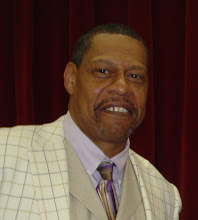As the number of residents moving to lands that sit adjacent to federal lands increases, the mission of the U.S. Forest Service has changed. Initially designed to do campground maintenance, research, road repair and backcountry wilderness management, they have become the fire fighters for wealthy land owners who want to enjoy the great outdoors at tax payer expense. I have no problem with people living where they want, but if you choose to live in a dangerous place (sides of mountains, near forests, etc.) you must be willing to accept the inherent risk of doing so. Why should we the tax payers subsidize your million dollar dream home?
News Flash – Forests catch on fire; mountains erode, these are natural phenomenon that have taken place in nature from the beginning of time. If you want to spend millions of dollars to get that perfect view of the ocean off the side of a mountain more power to you, but don’t do it on my dime. For some reason some people have gotten the idea that protecting them in high risk areas of nature is the federal government’s job. Many of these same people decry big government and poverty programs, but have no trouble demanding that the government fight the wild fires and if necessary repair or replace their million dollar homes if they become damaged due to what occurs naturally.
Some residents in the high-risk areas worry that the federal government will be tempted to pass the problem along to local governments or homeowners.
“The federal government is there to protect the community from disasters,” said Ron Ehli, 50, a volunteer fire chief in Hamilton, Mont., an increasingly popular getaway in the Bitterroot Valley south of Missoula.
“Where Florida might have hurricanes, or California earthquakes, we have wildfires,” Mr. Ehli said. “And the federal government should be there to protect us.
Truth be told, the nation’s founders would probably be shocked that the government was still in the land or firefighting business. Land, as the early framers of the republic saw it, through legislation like the Homestead Act, was for settlement and farming, and especially for private ownership.[1]
Excuse me, these people have chosen to live in harm’s way. If I pitch a tent in the middle of the highway, do I have a right to expect the government to protect me from the cars? Why is it ok for the government to protect those who need the least protection, but not ok for the ones who need it the most. This is another instance of where we have gotten our priorities mixed up; government is to protect those who cannot protect themselves, not those who foolishly tempt fate to live some extravagant dream. We are still struggling to get New Orleans rebuilt almost two years later and these folks want government fire and mud-slide protection; give me a break.
“Both of us were aware that these things happen,” said Ms. Morris, 47, as she looked out the window to the charred hillside. “We just didn’t think it would happen this fast.”
A new generation of Americans like the Morrises, in moving to places perched on the edge of vast, undeveloped government lands in the West, are living out a dangerous experiment, many of them ignorant of the risk.
Their migration — more than 8.6 million new homes in the West within 30 miles of a national forest since 1982, according to research at the University of Wisconsin — has coincided with profound environmental changes that have worsened the fire hazard, including years of drought, record-setting heat and forest management policies that have allowed brush and dead trees to build up.
“It’s like a tsunami, this big wave of development that’s rolling toward the public lands,” said Volker C. Radeloff, a professor of forest ecology and management at the University of Wisconsin. “And the number of fires keeps going up.”[2]
It has always amazed me how people claim to love nature, so long as they can control the environment. I like the great outdoors, but I don’t like the bugs, the rain, or the fires; this is of course what makes nature, nature. So many today want a virtual reality, they want the experience without the experience. They want a buffer between them and the great outdoors. Nature has a pattern and these patterns are how it renews and regenerates itself. Because of our wanting to control those patterns for the sake of development we have perverted the natural ebb and flow.
“I personally feel if they’re stupid enough to build their house with trees and stuff all around, it’s their dumb luck,” said Nancy Garness, 53, a baker at the Coffee Cup Cafe in Hamilton, who came to the area with her parents in the late 1950s when she was 4.
Insurance professionals say much the same thing.
“We all went through a period of, ‘write the policy and take the money,’ ” said Barry Whitmore, a State Farm Insurance agent in Hamilton. “Now we’ve got a wildfire checklist, and based on the answers, a home is either insurable or not insurable.”[3]
As the cost for protecting these developments continues to escalate it appears that people are starting to realize the nature of the beast. Even the greedy insurance companies realize this is a no-win situation, that nature will run its course. If anything as the climate patterns change there will be more fires and mudslides that will be more devastating. You want to be Davy Crockett, go right ahead, but when his cabin burned down he was looking for Uncle Sam to bail him out, why should you?







 Stumble It!
Stumble It!
No comments:
Post a Comment